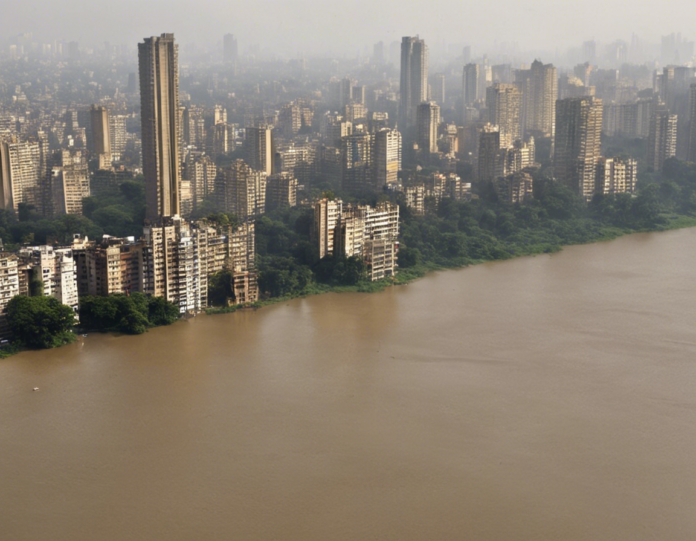Introduction
Mumbai, the financial capital of India, is a bustling metropolis facing critical challenges in water management due to rapid urbanization, population growth, and climate change. One of the key components of sustainable water resource management in Mumbai is monitoring lake levels. In this article, we will explore the significance of monitoring Mumbai’s lake levels, the technologies used for monitoring, the importance of real-time data, and the implications for water management strategies in the city.
Why Monitor Mumbai’s Lake Levels?
Mumbai is home to several lakes that play a crucial role in the city’s water supply, flood management, and overall environmental health. Monitoring these lake levels is essential for various reasons:
-
Water Supply Management: Many of Mumbai’s lakes serve as primary sources of drinking water for the city. Monitoring the water levels helps in understanding the availability of water resources and planning for sustainable water supply.
-
Flood Control: During the monsoon season, Mumbai is prone to heavy rainfall and flooding. Monitoring lake levels aids in predicting potential flood risks, enabling authorities to take timely action to prevent disasters.
-
Ecosystem Health: Lakes support diverse ecosystems and wildlife. Monitoring lake levels helps in assessing the health of these ecosystems, identifying disturbances, and implementing conservation measures.
Technologies for Monitoring Lake Levels
Several technologies are utilized to monitor lake levels effectively:
-
Water Level Sensors: These sensors are deployed in lakes to measure water levels accurately. They provide real-time data on lake levels, which is crucial for decision-making and forecasting.
-
Satellite Imagery: Remote sensing technologies, such as satellite imagery, are used to monitor changes in lake levels over a larger geographical area. Satellite data provide a comprehensive view of water bodies and help in detecting trends over time.
-
Telemetry Systems: Telemetry systems enable the remote transfer of data from lake level sensors to centralized databases or monitoring stations. This real-time data transmission is essential for timely action in response to changing lake levels.
Importance of Real-Time Data
Real-time data on lake levels offer numerous benefits for water management in Mumbai:
-
Early Warning Systems: Real-time monitoring allows for the development of early warning systems for floods, enabling authorities to issue alerts and evacuate residents in high-risk areas.
-
Optimized Water Allocation: By continuously monitoring lake levels, water resource managers can make informed decisions on water allocation, ensuring efficient distribution and minimizing wastage.
-
Climate Resilience: Real-time data help in building resilience to climate change impacts by assessing lake levels during extreme weather events and implementing adaptive strategies accordingly.
Implications for Water Management Strategies
Monitoring lake levels in Mumbai has significant implications for water management strategies in the city:
-
Sustainable Water Use: By monitoring lake levels and understanding water availability, authorities can promote sustainable water use practices among residents, industries, and agricultural sectors.
-
Integrated Planning: Real-time data on lake levels facilitate integrated planning for water supply, flood control, and ecological conservation, ensuring a holistic approach to water management.
-
Policy Formulation: Monitoring lake levels provides valuable insights for policymakers to develop informed policies on water conservation, pollution control, and climate change adaptation.
FAQs (Frequently Asked Questions)
Q1: Why is it important to monitor Mumbai’s lake levels?
A1: Monitoring lake levels in Mumbai is crucial for water supply management, flood control, and maintaining ecosystem health in the city.
Q2: What technologies are used for monitoring lake levels?
A2: Technologies such as water level sensors, satellite imagery, and telemetry systems are commonly used to monitor lake levels in Mumbai.
Q3: How does real-time data benefit water management in Mumbai?
A3: Real-time data on lake levels enable early warning systems for floods, optimized water allocation, and climate resilience in water management strategies.
Q4: What are the implications of monitoring lake levels for water management strategies?
A4: Monitoring lake levels leads to sustainable water use, integrated planning, and informed policy formulation for effective water management in Mumbai.
Q5: How can citizens contribute to monitoring Mumbai’s lake levels?
A5: Citizens can participate in awareness campaigns, report illegal activities harming lakes, and support conservation efforts to safeguard Mumbai’s water resources.
In conclusion, monitoring lake levels in Mumbai is a critical component of sustainable water management practices in the city. By leveraging advanced technologies, real-time data, and integrated planning approaches, authorities can address water challenges effectively and ensure a resilient water future for Mumbai.












